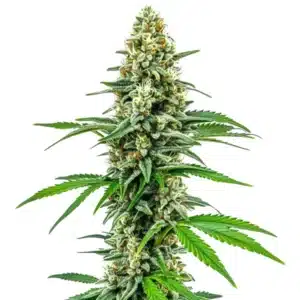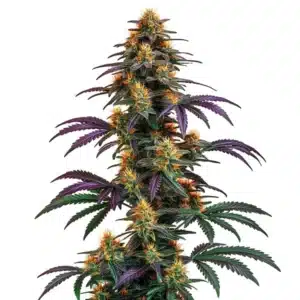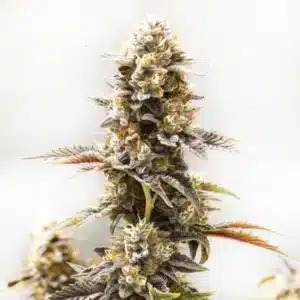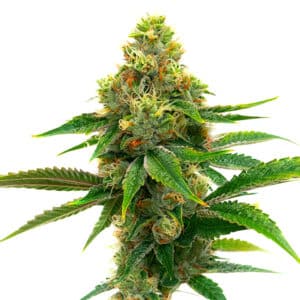
Weed Law in France: Regulations and Consumer Rights
Current Legal Environment
Recreational Use Restrictions
The current legal landscape surrounding weed law in France remains extremely restrictive, especially regarding recreational use. Unlike several neighboring nations that have embraced more liberal policies concerning cannabis, France maintains a strict stance. Authorities prosecute possession of cannabis with significant rigor, and penalties reflect that strictness. The French government evaluates potential reforms constantly, yet the prevailing weed law in France prohibits any recreational consumption. Consumers face a complicated environment that forces them to navigate legal risks carefully every day.
Law enforcement actively patrols public spaces to intercept any indication of cannabis use, pushing users to seek covert, hidden locations. This enforcement creates a pervasive culture of secrecy, compelling individuals to plan their activities with caution. Many citizens feel the pressure of these uncompromising statutes as they try to enjoy cannabis discreetly. The existing weed law in France creates real challenges for consumers who must plan every move to avoid legal troubles.
Recommended Strains
African x Princess 88
|
|
THC | 18% - 20% (Medium) |
|
|
Type | Feminized |
|
|
Yield | Medium |
|
|
Phenotype | 40% Indica / 60% Sativa |
South African
|
|
THC | 18% - 20% (Medium) |
|
|
Type | Feminized |
|
|
Yield | Medium |
|
|
Phenotype | 10% Indica / 90% Sativa |
Medical Cannabis Policy
On a more promising note, medical cannabis now offers hope to many patients in France. The government recognizes the significant benefits of cannabis for healing and pain management. Medical cannabis functions under a controlled framework that allows its use for conditions like chronic pain, epilepsy, and multiple sclerosis. This change marks an important turning point in weed law in France, as officials now support patients who need alternative treatments. The new policies encourage both research and patient care improvements.
However, access remains limited by strict regulations that demand cumbersome documentation and bureaucratic hurdles. Patients actively work through extensive procedures to secure their medication, which can be discouraging. Advocates insist that the system streamlines quickly and becomes more accessible for all in need, while stakeholders carefully observe each policy shift under the current weed law in France to drive future improvements.
Decriminalization vs. Legalization
Debate intensifies as experts contrast decriminalization with full legalization. Decriminalization reduces or removes criminal penalties for possessing small amounts, whereas legalization creates a regulated, legal market for cannabis. France has chosen decriminalization, a measure that softens punishments yet leaves many restrictions intact. This approach generates confusion among users regarding their rights and liabilities. Although not as permissive as legalization, decriminalization under the present weed law in France provides minimal relief while society debates broader reforms.
Advocates argue that full legalization would generate government revenue through taxation and reduce law enforcement burdens. They urge policymakers to move beyond partial measures and adopt a regulated market that benefits all stakeholders. The ongoing discussions center on how complete legalization might transform the existing weed law in France into a more progressive, consumer-friendly system, creating a paradigm shift in public policy and social norms.
Promos & Deals
History of Cannabis Legislation
Key Historical Developments
The history of cannabis legislation in France is rich and intricate, mirroring evolving societal attitudes toward substance use. In the early twentieth century, cannabis enjoyed widespread medicinal use and embraced fewer restrictions. As concerns over addiction grew, authorities implemented increasingly strict controls. By the 1970s, French officials classified cannabis as a narcotic, setting the stage for the stringent penalties and rigorous enforcement that persist today. Historical records reveal a gradual hardening of positions, which established the foundation for the current weed law in France.
Generational movements emerged, advocating reform as public sentiment shifted toward accepting cannabis as a personal choice. Activists, intellectuals, and younger citizens challenged the harsh policies, urging changes that reflected modern values. Their persistent efforts have driven incremental legislative evolution and kept the debate on cannabis regulation alive. This historical progression continues to influence how contemporary society interprets and applies the weed law in France with renewed urgency.
Shifting Public Opinion
Changing public sentiment plays a crucial part in reshaping cannabis policies. Recent surveys indicate that younger demographics now view cannabis as a personal matter rather than an inherently criminal offense. Many French citizens support a more permissive approach and advocate for reforms that reflect modern health and lifestyle practices. This evolving mindset exerts pressure on policymakers and fuels the call to update the weed law in France in ways that respect personal freedom while safeguarding public health.
Citizens now voice their experiences with cannabis use openly, gradually shifting the cultural narrative toward acceptance and rational reform. Enthusiasm for reforms has spurred both grassroots campaigns and political debates. These collective efforts represent a significant push to change outdated legal restrictions. Public sentiment now plays an essential function in influencing changes to the current weed law in France, potentially paving the way for future improvements.
Recent Legislative Changes
In recent years, legislative modifications have started to change the restrictive landscape. The government now tests pilot programs for medical cannabis, reflecting cautious progress toward reform. These pilot projects enable officials to assess the safety and efficacy of cannabis for therapeutic purposes. Such controlled experiments have provided invaluable insights into potential future strategies for revising the weed law in France, indicating a willingness to adapt and modernize outdated policies.
These recent measures do not fully liberalize cannabis policy but signify important shifts. The government now implements new procedures to regulate cannabis strictly while allowing limited access for medical reasons. Such policy changes demonstrate proactive efforts by regulators to reevaluate outdated methods. These changes offer hope to patients and advocates that future revisions of the weed law in France will provide broader access and reduced penalties, gradually aligning with international trends.

Enforcement and Compliance
Police and Legal Procedures
Enforcement of cannabis laws in France engages local police in tight surveillance and rapid intervention in suspected cases. Officers patrol public areas frequently, seeking any signs of cannabis use. When authorities spot offenders, they initiate immediate legal action with fines or arrests. Citizens must follow strict protocols to avoid law enforcement interventions as dictated by the current weed law in France. These active measures keep the regulations in force and directly impact everyday behavior.
The judicial system now handles cannabis cases with established procedures that demand quick resolution. Legal experts advise that individuals facing charges secure professional legal counsel to protect their rights. Courts review cases thoroughly, and defendants receive guidance from specialized attorneys who navigate these complicated processes. Such vigorous enforcement measures form a critical part of the overall weed law in France, ensuring that all involved understand the legal consequences.
Fines and Penalties
Authorities impose fines and penalties for cannabis possession that vary based on quantity and context. Individuals caught with small amounts confront moderate fines, while significant quantities trigger harsher punishments, including potential jail time. Such consequences reflect the government’s strict policies designed to deter usage. The financial burdens and potential imprisonment strongly deter casual users, maintaining the severity established by the weed law in France. Many citizens experience these penalties and adjust their behavior accordingly.
The fines levied on offenders impact various communities differently, often hitting lower-income individuals the hardest. Law enforcement regularly imposes financial sanctions, which put a strain on those facing repeated offenses. These penalties create real deterrents and significantly influence public conduct. Businesses and individuals alike adapt their practices to avoid these legal consequences, demonstrating the strict enforcement of the weed law in France through daily life adjustments.
Court Proceedings and Appeals
Court proceedings for cannabis-related offenses run lengthy and require careful preparation. Accused individuals now fight their charges with vigorous legal representation, while judges evaluate each case based on established statutes. Defendants who believe they face unjust penalties pursue appeals through complex legal channels. Lawyers provide strong guidance, ensuring clients understand their legal options in every step. Courts actively determine outcomes, and many cases influence future interpretations of the weed law in France directly.
The appeals process further tests the limits of current legislation, as authorities interpret and apply the law with new perspectives. Individuals persistently challenge convictions when they believe errors occurred. These detailed legal battles seek to refine enforcement policies and may eventually lead to broader reforms. Every courtroom decision emphasizes the strict scrutiny applied to cannabis offenses under the weed law in France, leaving a lasting impact on future legal cases.
Impact on Consumers and Businesses
Market Opportunities and Challenges
The current enforcement of cannabis regulations offers both promising opportunities and significant challenges for consumers and businesses. Entrepreneurs eye potential market creation, envisioning a future where legal cannabis retailing flourishes. Entrepreneurs prepare for a regulated environment by investing in compliant operations while consumers continue to access products covertly. Despite emerging opportunities, many businesses struggle with the limitations imposed by the weed law in France. They face hurdles that delay growth and limit access to capital, forcing them to seek innovative workarounds.
Underground markets thrive due to rigid legal constraints, providing products where legal avenues remain closed. Consumers risk legal repercussions when they purchase from unregulated sources, further complicating the marketplace. The delicate balance between legal compliance and market demand challenges both sides. Business leaders and consumers adapt their strategies while navigating this environment shaped by the weed law in France, each move influencing the overall economic landscape.
Consumer Rights and Protections
Protecting consumer rights within a strict regulatory framework stands as a priority for many advocates. Patients receiving medical cannabis depend on clear, reliable safeguards that ensure product quality and accessibility. Consumers demand transparent labeling and steady supply chains that meet health standards. Discussions center on reform that will guarantee users receive safe products. Advocates insist that consumer rights improve while systems adapt to emerging models of regulated use under the current weed law in France.
Citizens actively promote higher safety standards in cannabis product manufacturing. Industry representatives work to develop guidelines that protect consumers, ensuring transparency in every transaction. These measures empower individuals to make informed purchasing decisions and avoid substandard products. Consumers witness gradual changes intended to boost their protection, reflecting the growing demand for reforms in the weed law in France without compromising public health or safety.
Trends in Legislation
Experts predict that trends in cannabis policy will evolve significantly over the coming years. Public sentiment shifts and increased advocacy for reform signal potential legal changes. Many stakeholders support a regulated market that could eventually replace current oppressive policies. Decision-makers engage in debates that might result in broader liberalization. Researchers project that emerging trends may realign the entire legal framework governing cannabis use. The progressive transformation of the weed law in France appears possible as reforms gain momentum.
Future proposals may simplify legal procedures while expanding consumer access, potentially boosting economic growth. Lawmakers face pressure to balance public safety with personal freedoms, driving them to propose innovative revisions. In this dynamic environment, future trends promise to remove cumbersome restrictions gradually. Market participants and regulators adapt strategies while discussions continue, all under the lasting influence of the weed law in France, which now stands at a crossroads of potential reform and modernization.

FAQs about weed law in France
What is the current legal status of cannabis in France?
Cannabis remains illegal for recreational use in France. The government enforces strict penalties with heavy fines or imprisonment. Conversely, medical cannabis qualifies for prescription under specific conditions, enabling patients to access treatment legally while navigating strict regulations. This status reflects the rigid system maintained by the current weed law in France.
Are there any reforms expected in the near?
Discussions suggest future reforms may gradually ease the strict cannabis restrictions. Many experts expect the government to eventually modernize the policies, though significant changes remain uncertain. Advocates continue to push for a clearer, regulated market that could transform the current weed law in France significantly over time.
How do penalties for cannabis possession compare with other countries?
Penalties in France remain harsher than in several European nations that have embraced decriminalization or legalization. The legal system imposes strict consequences, including fines and prison sentences, making enforcement significantly more severe. This condition starkly differentiates the weed law in France from more liberal policies elsewhere.



















